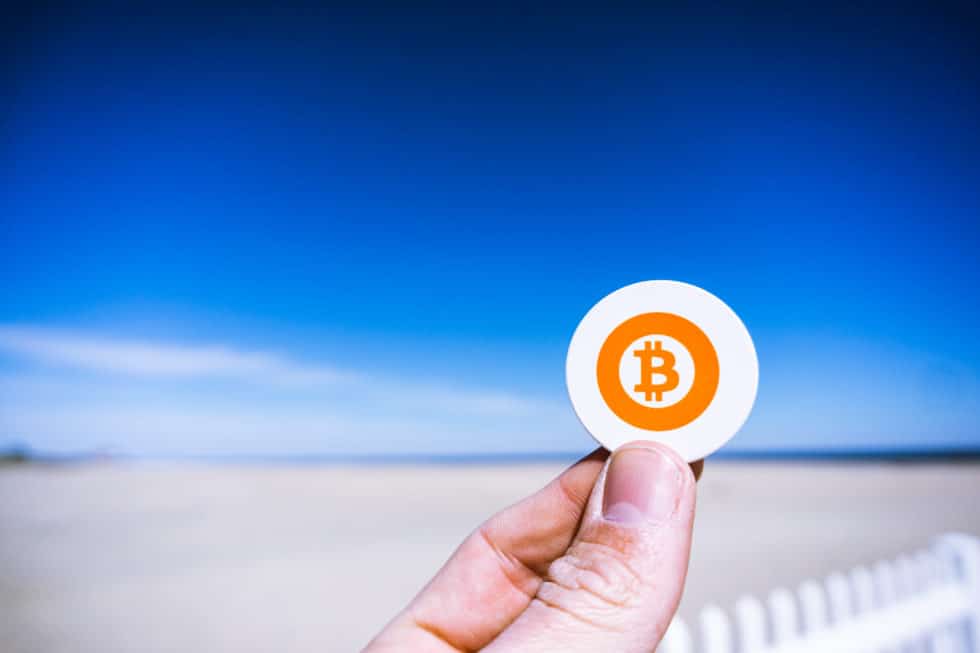The crypto currency is undoubtedly the biggest phenomenon that has hit the financial sector since the Internet. It is not simply a new type of investment, but a completely new asset class. The last time the world has seen an entirely new asset class was over 300 years ago, when the Bank of England issued the first government bond to finance a war with France. If crypto currencies continue to establish themselves and succeed, the impact will be global and profound.
We are talking to Andy Bryant, COO of bitFlyer Europe, about the relationship between crypto currencies and the financial service market and how crypto currencies could change the global financial landscape today.
Mr. Bryant are you sharing the following statement: The future of the crypto world is about to be reassessed because of the corona crisis.
Yes, I agree. In general, the crypto-world is about to be reassessed, because.: More and more people understand its value proposition, its original premise and its future potential in a world of unstable financial systems. Bloomberg says that money loses its value. I share this opinion, especially now in the middle of the Corona pandemic. Many people are correctly asking themselves: why are airlines being rescued when they have spent 90 percent of their net profits over the last ten years to buy back their own shares and cut executive bonuses? Or why are there homeless people, when we can easily print trillions of dollars for free?
Given the current situation, where do you see the opportunities and risks for crypto currencies?
Given the current situation, I see many opportunities for the crypto world: one is the dramatic increase in crypto prices due to large capital allocations from major players and more traditional institutions desperately seeking returns and protection from the “old economy”. Equally beneficial is the shutdown of the interest rate system and the resulting nationalization of the financial sector into a decentralized financial system, which is growing extremely fast and is being built up without the limitations of the old infrastructure.

I also see the erosion of power and the influence of corrupt or ineffective monetary regimes and currencies in emerging markets as an opportunity – replaced by a better crypto-alternative.
There will also be a struggle between sovereign money, the national currency and corporate money. Sovereigns (e.g. fiat money) will move towards CBDCs (Central Bank Digital Currencies) to achieve a more effective distribution of unconditional basic income – only with greater monitoring. Corporate funds will be accelerated by Facebook’s Libra project to create new cross-border paradigms. And public crypto currencies such as Bitcoin, which are free of control and corruption and promote the concept of the “sovereign individual”, will march further ahead.
The list of opportunities is endless, as you can see. But there is a flip side to everything. Price uncertainty and volatility will certainly follow. Price fluctuations are not without danger either: if values rise too high too quickly, consumers will start to speculate excessively, and regulators would have to intervene. This could tempt governments to ban public crypto currencies or take action against them. In my opinion, this would be very unwise and, apart from that, almost impossible. This would simply shift innovation abroad.
Crypto currencies have not yet reached the masses – will this change given the crisis?
Many people simply do not understand what crypto currencies actually are and what you can do with them. We need a little more time, but I think that the interest will increase – at the latest when crypto-prices shoot through the ceiling. At the moment, however, the crypto currency, which seems complicated to the layman, is a deterrent – we have to change that.

Regardless of the crisis, a very important event took place at Bitcoin: The so-called Bitcoin Halving, which only happens every four years and which in the past has caused large price increases. On May 18, 2020 Miner received 50 percent less Bitcoins for transaction verification, which is expected to attract a lot of attention. The sharp rise in Google’s search trend for Bitcoin halving reveals the general interest in the event.
In your opinion, should everyone have crypto currencies in order to be prepared in the future during times of crisis?
Crypto currencies like Bitcoin are a “buy option” of the future. They are not only an asset, but a whole new asset class. One that is completely separate from the entire financial system that we have today. Crypto currencies are apolitical, global, stateless, immune to quantitative easing, demonstrably scarce and decentralized. Since today’s financial system is completely unstable, I recommend that everyone should pick up and invest at least some small change. I see it as an asymmetric investment: there is certainly a chance of losing everything, although I think that is rather unlikely. But there is also the chance that the value invested will multiply by a hundred times. So why not simply invest one to two percent of your assets in Bitcoin?
Wouldn’t it make more sense to invest in gold? Investor confidence is higher, but the commodity is equally scarce?
For various reasons, I have also invested in gold. Not only because it is as scarce a commodity as Bitcoin, but also because it has a 6,000-year history of success as a store of value. Gold offers a better return than cash or bonds with negative interest rates, and it is a larger asset class than Bitcoin (nine trillion US dollars against 130 billion US dollars for BTC). But the main difference that makes Bitcoin a winner in my opinion is, that Bitcoin exists exclusively in the digital world and is therefore decentralized. Gold, on the other hand, can also be transferred, but the transport effort is enormous, and storage involves additional costs. This makes Bitcoin a strong opponent for all noble metals in the value storage market.
For a long time, Bitcoin was considered absolutely crisis-proof – how do you explain the zigzag course of the last few weeks?
It is very important to understand that what happened at the outbreak of this crisis was a liquidity event and not an economic or banking event. All financial assets were sold – including stocks, crypto and even gold. Investors went crazy for cash because it seemed the safest way for them to settle their debts. With the recent increase in institutional and brokerage ownership, Bitcoin was hit particularly hard.
“It is very important to understand that what happened at the outbreak of this crisis was a liquidity event and not an economic or banking event.”
Many of these institutions would have been forced to sell their assets to meet margin calls and security requirements. The fact that crypto-markets are open 24 hours a day also led to a particularly rapid decline.
Despite this initial slump, the recovery quickly set in: Bitcoin has already recovered about 80% from its low of $3867 on March 13 this year, while S&P has only managed a fraction of that. It is also true that the relatively small size of the market capitalization makes Bitcoin vulnerable to large price movements as capital flows in and out.
When will the market be recovered and do you think Bitcoin/other Kryptos is facing a new hype?
It is estimated that this will happen when Bitcoin rises above USD 10,000 again. I am very sure there will be a new hype. Because: 99 percent of main street and mainstream media tend to ignore technology development and focus only on the price. So, another bubble will most likely trigger another cycle of hype.
How can consumer confidence in cryptos be built in times of crisis?
Fortunately, more and more mainstream media are dropping the negative-spin-campaign and false stories (e.g. Bitcoin is only used by criminals) and instead report positively or at least neutrally about the technology. It is important to draw attention to the uncorrelated nature of the pricing behavior of crypto currencies. We need to educate consumers about the history of money and make them understand that any fiat currency will fail through excessive use of quantitative easing or devaluation. More and more governments, masterminds and trustworthy institutions are in favor of crypto-currencies, but still many people are simply unaware of the benefits of crypto-currencies. Some tools and applications have already focused on promoting the general understanding of crypto currencies and explaining the individual processes in detail.
